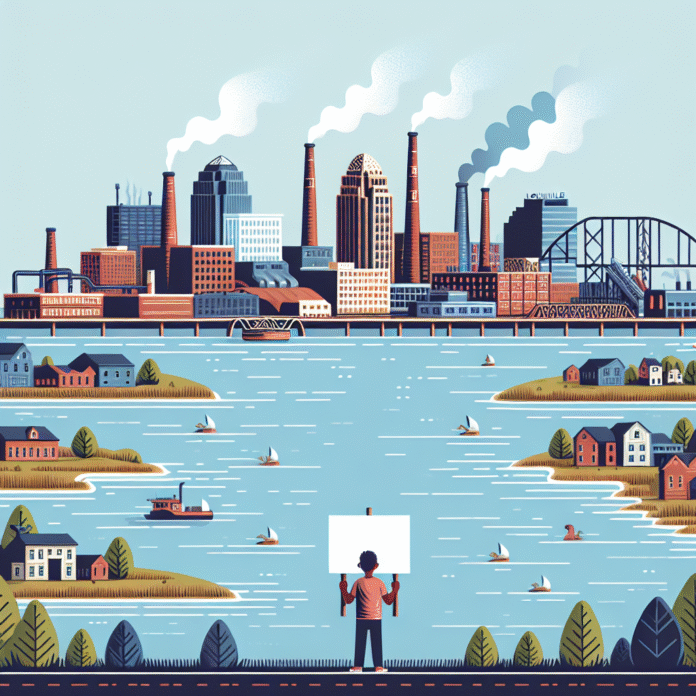Louisville’s Response to Pollution from Industrialization
Retro Louisville: Addressing Pollution Amid Industrial Growth
As industrialization reshapes Louisville, the city finds itself grappling with the adverse effects of air and water pollution. The rapid expansion of factories and industrial operations has raised concerns among residents about the quality of their environment and public health.
Historical Context of Industrialization in Louisville
Louisville’s journey through industrialization began in the late 19th century, transforming it into a bustling hub for manufacturing and commerce. While this growth brought economic opportunities, it also led to significant environmental challenges. The proliferation of factories and heavy industries has contributed to increased emissions and waste, prompting the city to take action.
Steps Taken to Combat Air Pollution
In response to growing health concerns, Louisville has implemented several initiatives aimed at reducing air pollution. The city has adopted stricter emissions standards for industrial facilities and has invested in cleaner technologies. Moreover, public awareness campaigns have encouraged residents to use public transportation and carpool, thereby decreasing traffic-related emissions.
The establishment of green spaces and urban forestry programs has also been a part of the city’s strategy to improve air quality. Trees play a crucial role in absorbing pollutants and providing cleaner air for the community.
Efforts to Improve Water Quality
Alongside air quality initiatives, Louisville has prioritized the preservation of its water resources. The city has undertaken significant upgrades to its wastewater treatment facilities to ensure they meet modern environmental standards. These improvements are aimed at reducing the discharge of harmful pollutants into local waterways.
Additionally, Louisville has launched programs to monitor and protect its rivers and streams. Community engagement initiatives encourage residents to participate in clean-up efforts and advocate for sustainable practices that protect water quality.
Community Involvement and Education
The city recognizes that effective pollution control requires the involvement of its citizens. Educational programs in schools and community events raise awareness about the importance of environmental stewardship. Local organizations are actively working to mobilize volunteers for clean-up projects and promote sustainable living practices.
Future Challenges and Opportunities
Despite the progress made, Louisville faces ongoing challenges in its fight against pollution. Industrial growth shows no signs of slowing, and balancing economic development with environmental protection remains a critical task. Continued investment in sustainable technologies and practices will be essential for the city to thrive while safeguarding the health of its residents.
The integration of renewable energy sources, such as solar and wind, into the city’s energy mix represents a promising opportunity. By embracing innovative solutions, Louisville can pave the way for a cleaner and more sustainable future.
Conclusion
Louisville’s response to industrialization highlights the city’s commitment to addressing air and water pollution. Through a combination of regulation, community engagement, and technological advancement, Louisville is taking significant strides towards a healthier environment. As the city continues to grow, its ability to balance development with sustainability will be crucial for the well-being of its residents and the preservation of its natural resources.
